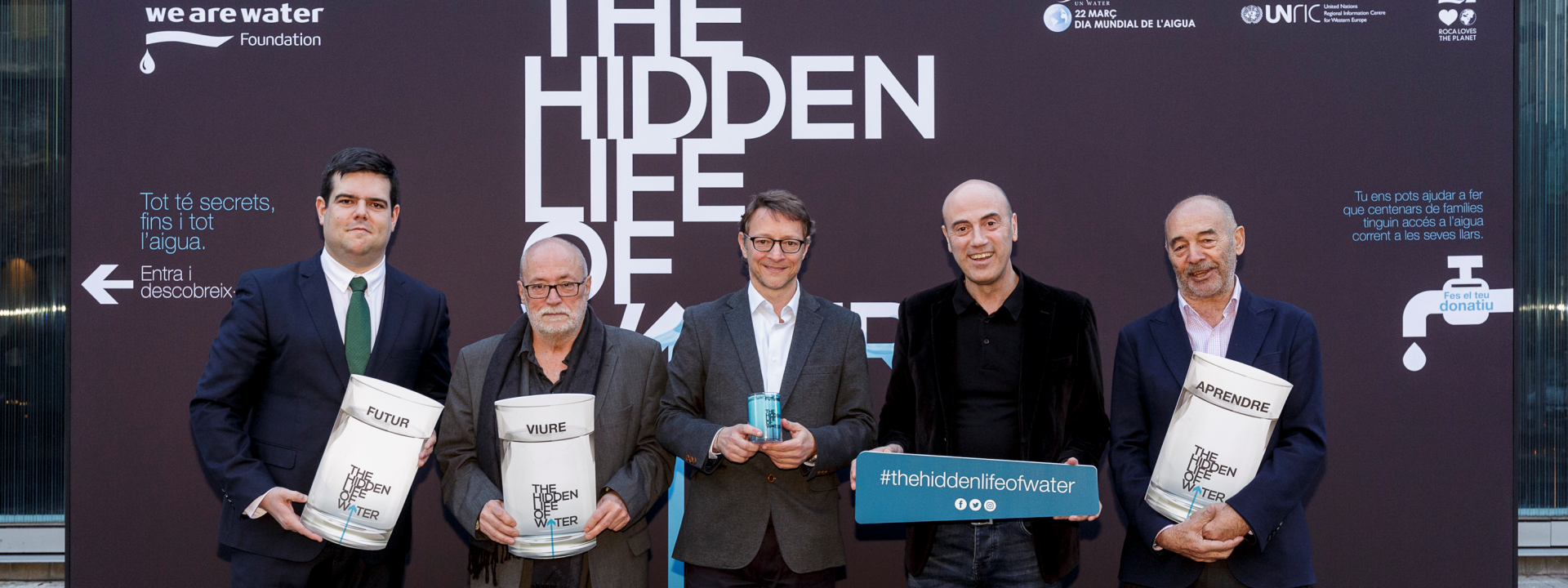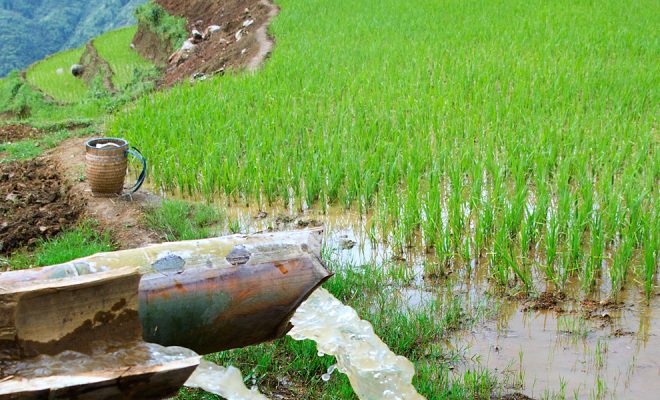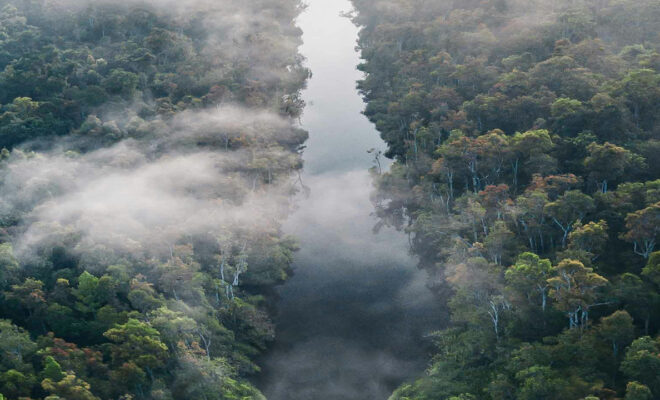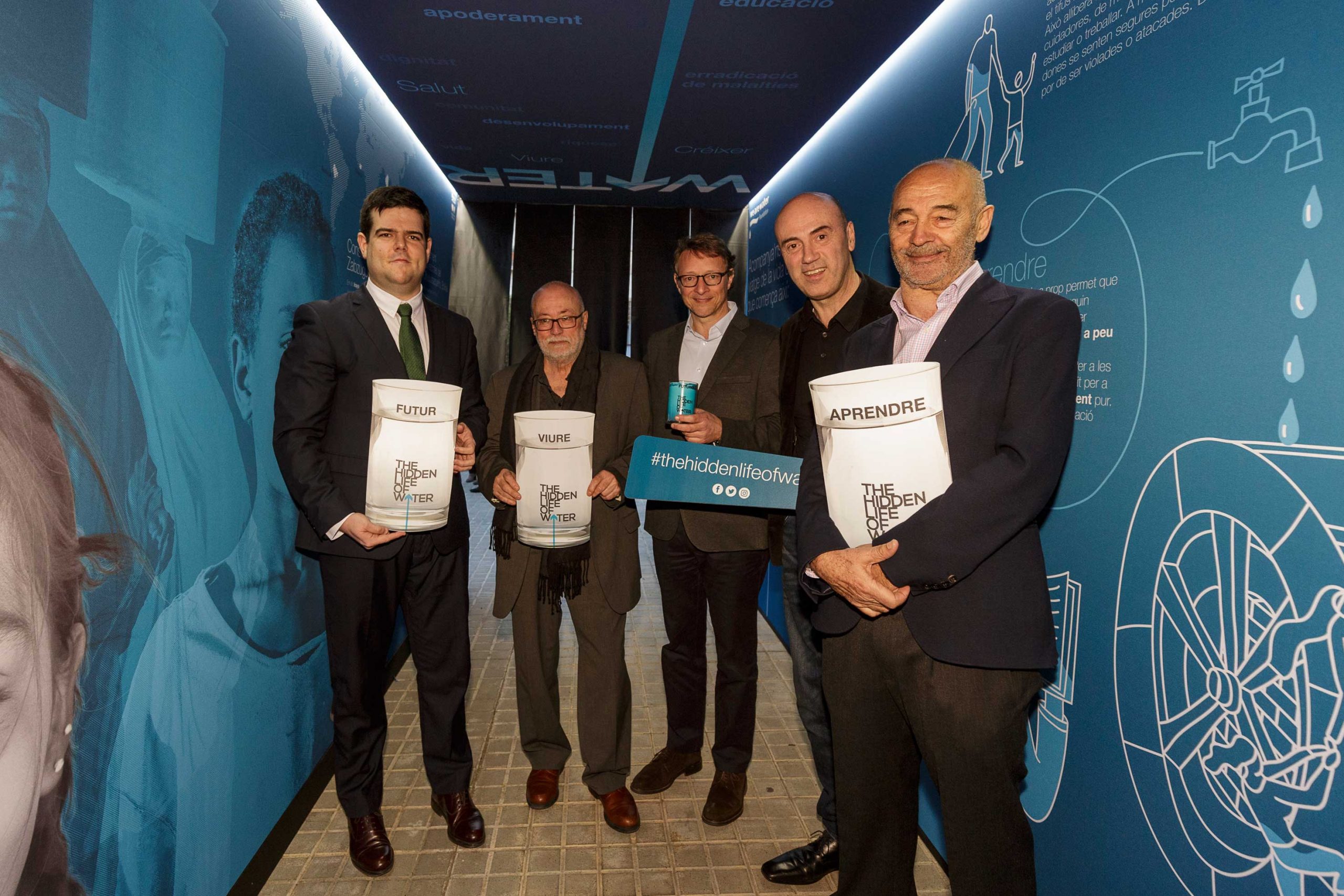
What are the challenges we face to ensure a future with full access to water and distributive justice? How does climate change affect this? What problems affect water purification? On World Water Day, millions of people around the world asked themselves these questions and came up with answers that need to be addressed without delay.
At the Roca Barcelona Gallery, the We Are Water Foundation organised the round table Water, the crisis of the new generations, bringing together experts in the field of meteorology, water treatment and quality control with the aim of discussing the demand for water in a scenario of scarcity as seen in large parts of the world, including Spain.
The round table was made up of Tomàs Molina, physicist and director of meteorology at Televisió de Catalunya; Rafael Mantecón, chemical engineer and expert in wastewater treatment and purification, and sanitation coordinator for the Barcelona Metropolitan Area; Manuel Suárez,president of the Association for the Defence of Water Quality; and Xavier Torras, director of the We Are Water Foundation.
The lack of water, a human problem
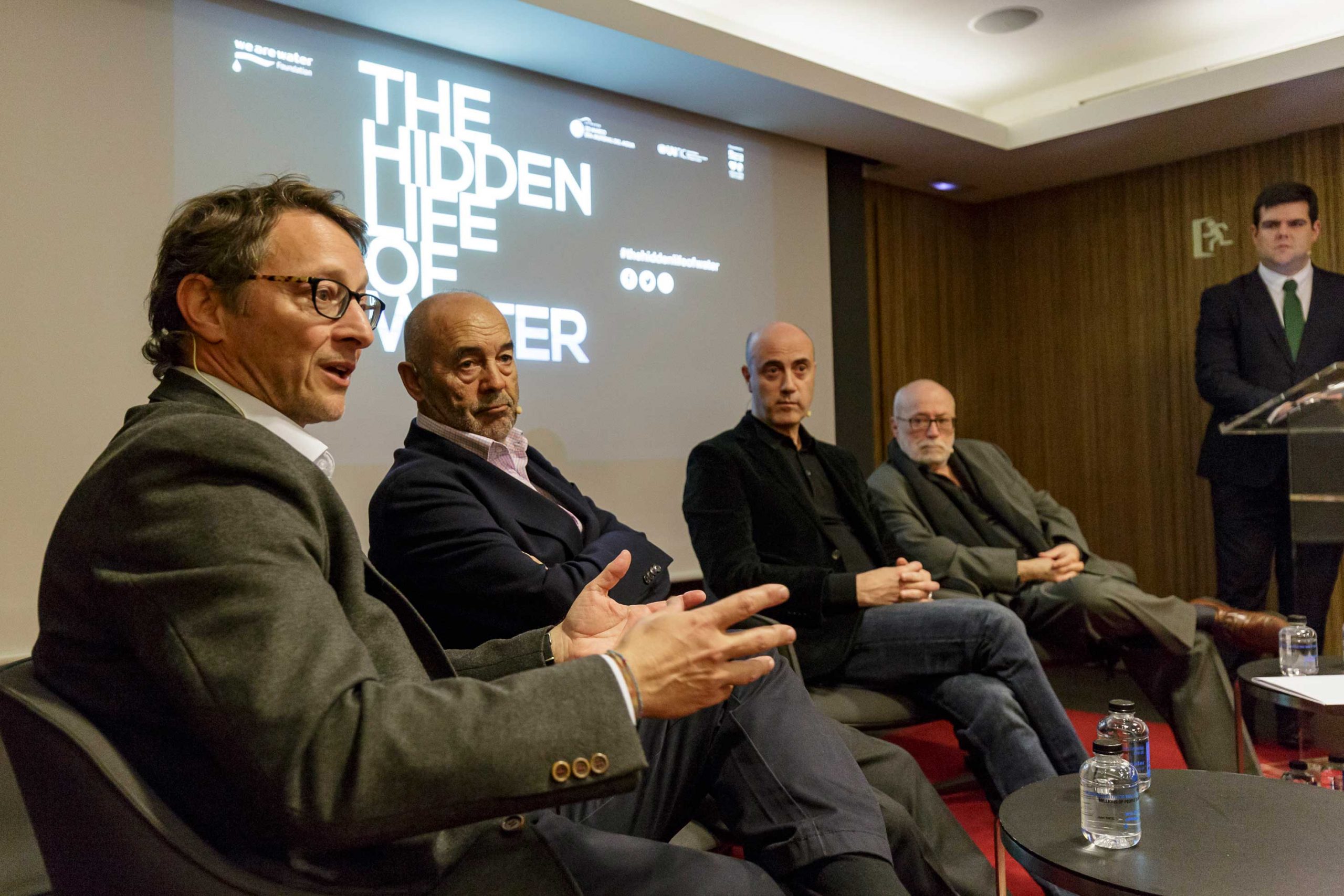
The debate, moderated by David Escobar, partner at iAgua, delved into the importance of water in the life of our civilization.
It was initiated by Xavier Torras, who explained the significance of the campaign “The Hidden Life of Water” launched by the We Are Water Foundation on World Water Day: “Beyond what we drink and what comes out of the tap, water is everywhere, even if we don’t see it.” Torras explained the concept of the water footprint of the goods we consume, something we are not always aware of: “Everyone in this room is dressed in clothes that have consumed an average of 14,000 to 15,000 litres of water. Water is present in every link in the economy. The worst thing that can happen to a country is to run out of water supply.” And he recalled a historical fact to understand the importance of climate change: “The Mayan civilization, large and splendorous, experienced a climate change that caused four centuries of water scarcity, causing its decay and disappearance.” He also pointed out that water is essential for justice, for health and gender equality, remembering the women and girls that need to walk to fetch water. The director of the We Are Water Foundation gave the example of Sudan where a 12-year-old girl can spend between two and four hours collecting water.
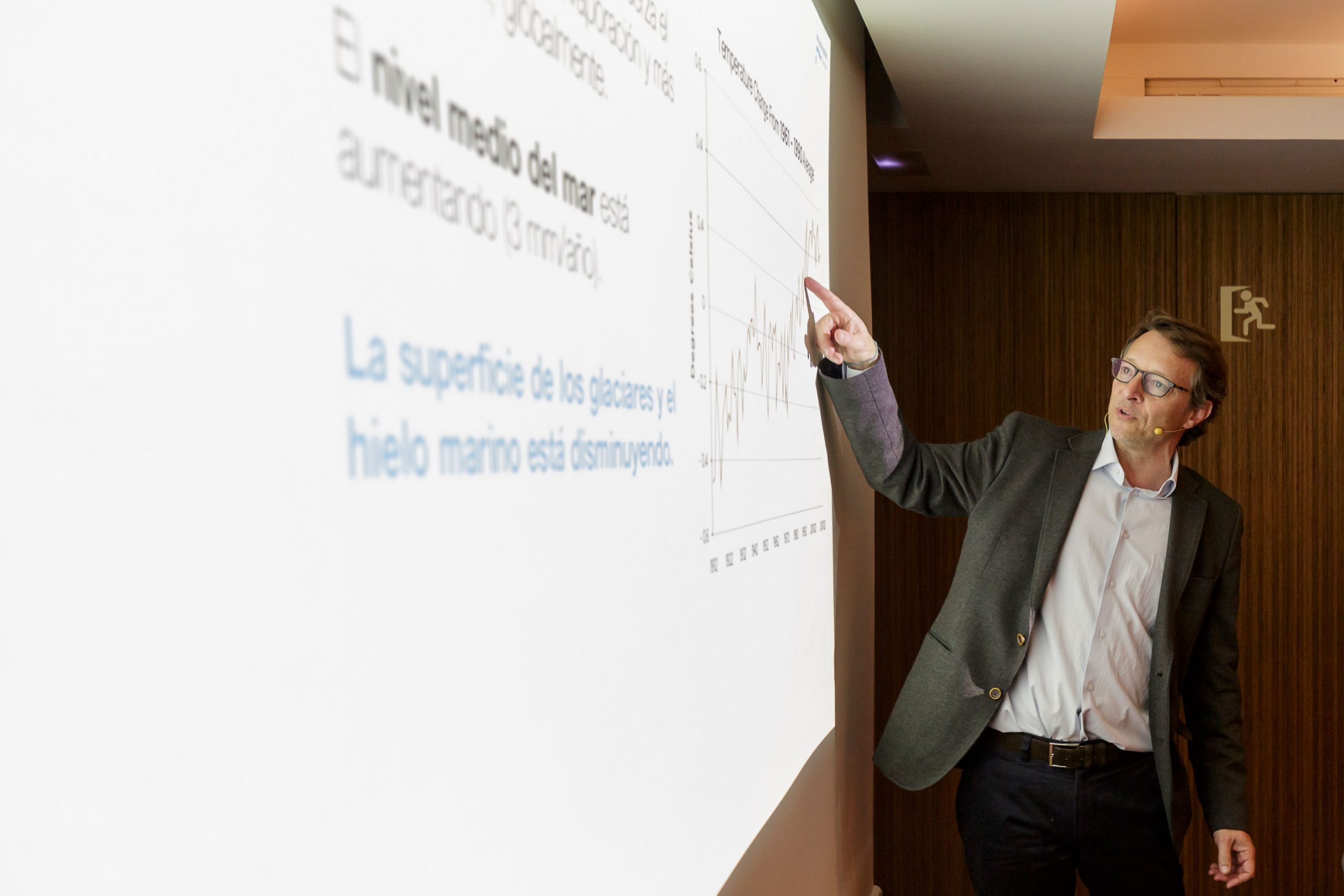
Tomàs Molina agreed with this view, pointing to the lack of water as one of the main factors altering the demographic and social balance in the poorest areas: “The lack of water in Africa is one the major triggering events of the migratory movements we are experiencing in Europe. Water changes the lives of people and this is what is happening with climate change: human geography will also change.”
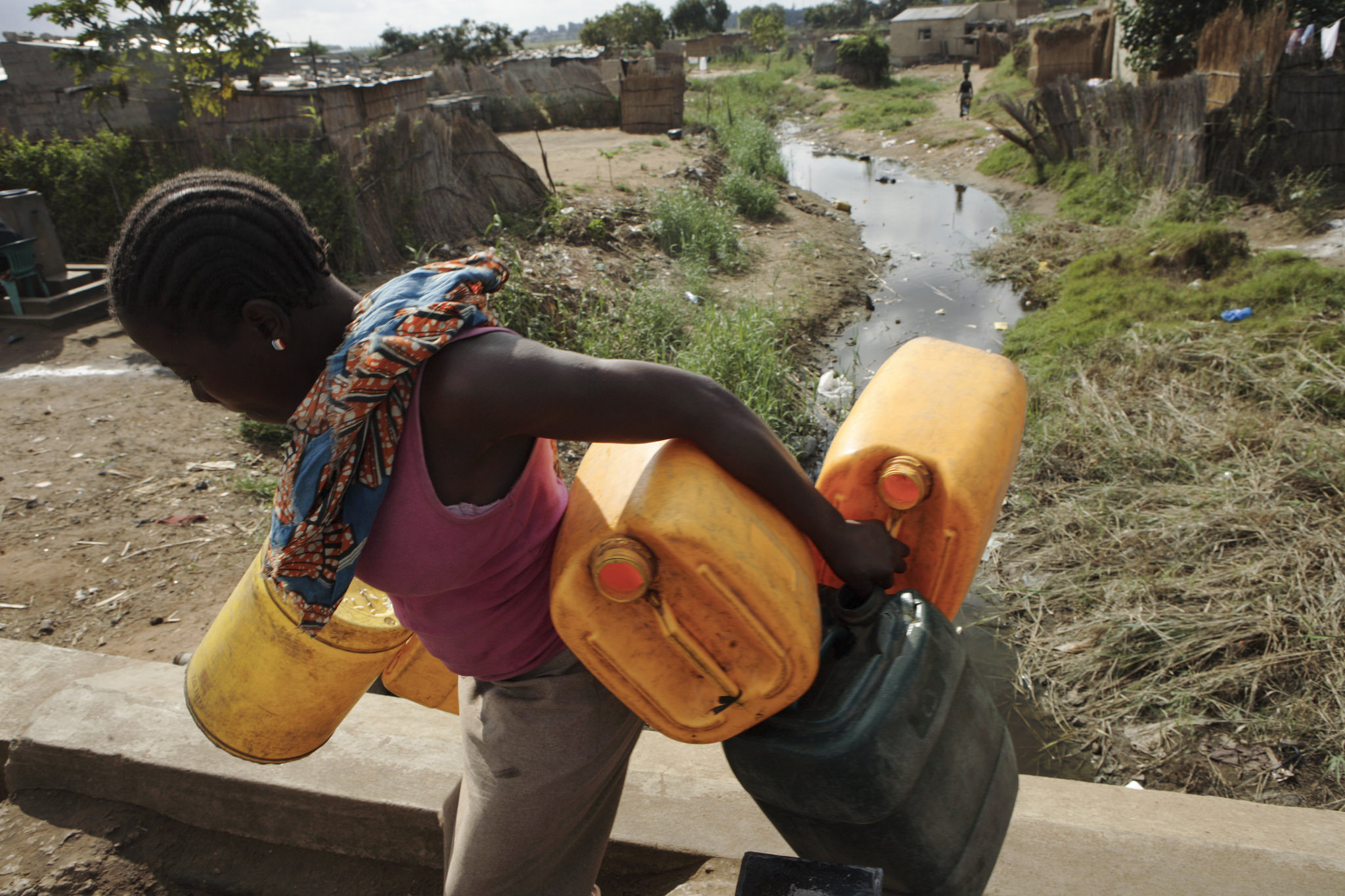
© Maputo Matola Polluted Stream & Water Pipe – John Hogg
In this regard, Manuel Suárez stated that water will always be a scarce resource in developing countries: “The problem is poverty. The rich countries have technologies to obtain water if they lack it, as we can see in many Middle Eastern countries that desalinate seawater.”
Xavier Torras emphasized the need to raise awareness of the meaning of tap water: “We don’t give importance to the water we use in our homes. We tend to trivialize it, we consider it an assumed right, but we have to bear in mind that if you cut off the water supply, you annihilate an entire community. And notice how important all this is, that this threat is not even used as a military strategy in conflicts between countries, but it causes governments to reach agreements on the distribution of water.”
A human and global problem: drought and desertification
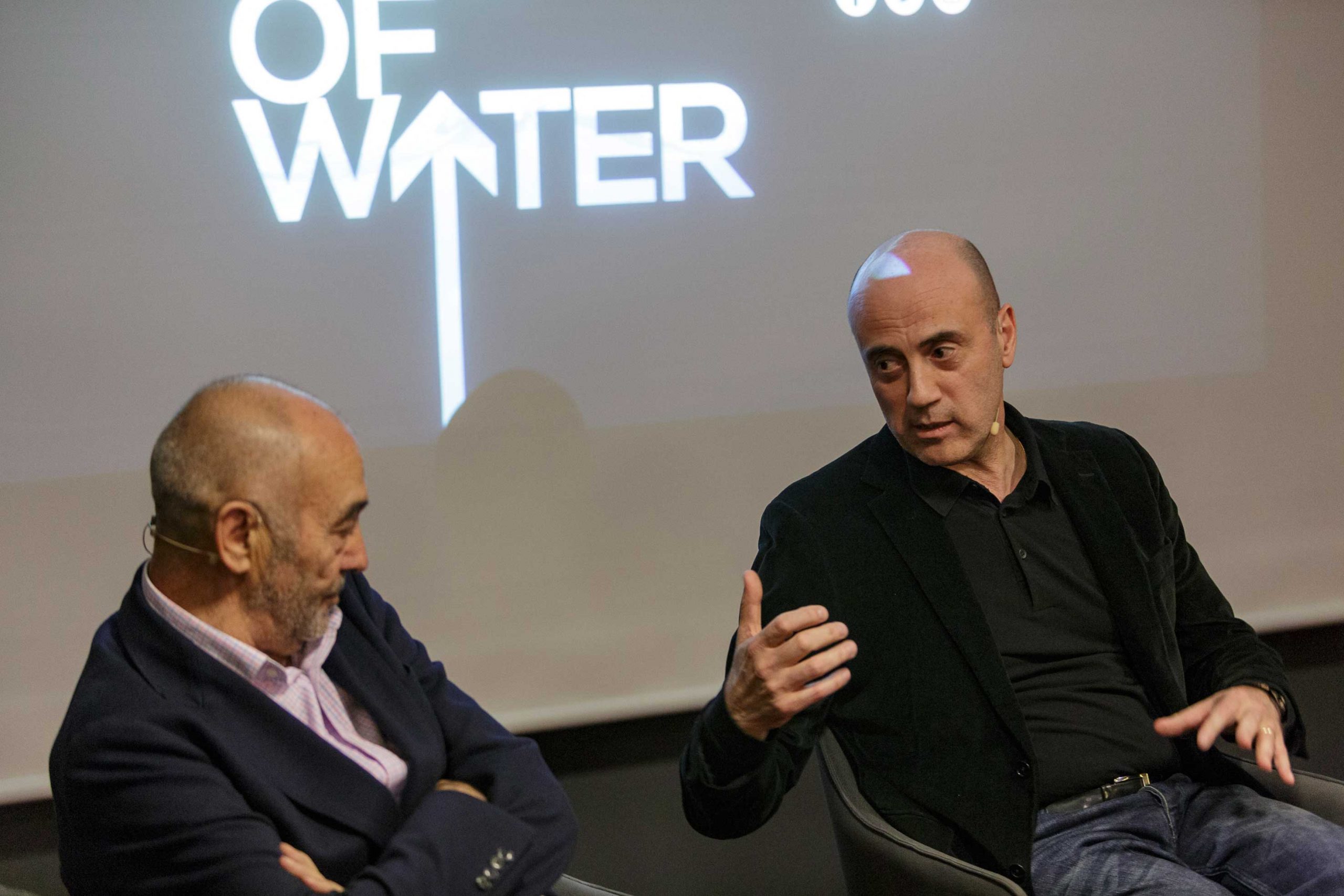
David Escobar introduced the topic of drought and climate change: “All the alarms have sounded in Spain with the latest drought: in agriculture, industry and politics.”
In this regard, Tomàs Molina explained the worrying climatic situation in some areas of Spain: “The recent rains have greatly alleviated the drought, but there are areas such as Murcia and the northeast of Gerona that are still very dry.” The meteorologist explained how rainfall is distributed in the Iberian Peninsula based on meteorological phenomena, and highlighted a fact to understand the relationship between rainfall and drought that we often do not take into account: “In summer, in Spain, it if rains less than 350 litres, water evaporates because of the high temperature. It is water that practically does not reach the ground and is the prelude to desertification, a phenomenon that in many areas is getting worse due to climate change.”
Water in Spain: a management problem
The scarcity of rainwater and the supply needs are a worrying combination in Spain. Rafael Mantecón pointed out a factor to be urgently considered in any country: “An increase in population logically implies an increase in consumption and discharges. Our wastewater treatment plants will not be able to cope, they are not prepared for this increased consumption and they are not prepared for the large flooding of water that climate change can bring.” For the expert in treatment and purification the problem in Spain is one of management: “I do not think we have a water quantity problem; as far as quality is concerned I am not so sure, but with good management there will be enough water without having to resort to desalination plants.”
The members of the round table agreed that in Spain there is adequate technology to obtain high-quality water and that by paying it is possible to get the water you need and with the best quality, but all speakers agreed that there has to be a technological solution that is reasonable with the cost of water. Tomás Molina pointed out Barcelona’s reaction to the last drought in 2008: “The drought was very worrying and the El Prat and Blanes desalination plants were put into operation. This was beneficial for the Ter river basin, which saw its flow increase as it allocated less water to supply the city, but it is clear that we cannot live on desalinated water alone.”
In this regard, Manuel Suárez pointed out that water will always be a scarce resource in Spain and that, as a society, we have an obligation to find optimal solutions for the equitable distribution of water: “Transfers always cause problems, but until now they have been necessary. In fact, cities absorb water from river basins and without them cities would not have grown as we know them today. If there is water left over in an area, you can take it out of there, but in a reasonable way. In other words, we have to manage well where we get the water from and the cost of the supply to find a reasonable price, this is fundamental.“
The issue of the quality of the supplied water was fully discussed. Manuel Suárez pointed out the problem of the salinity of some basins: “The problem in many cases is the quality of the water in the basins. In the Llobregat, for instance, where water has many purification cycles from Berga to Barcelona, the problem is not the purification of this water but that of salt, since the river has a salt basin. Salt is a big problem, because many industries cannot reuse water due to its saline concentration and salt cannot be eliminated without consuming water, because when applying reversible electrodialysis you have to dump a lot of water with a high salt concentration into the sea, which increases the stress of the basin by decreasing its flow.”
The price of water, the eternal debate
Tomàs Molina pointed out certain inconsistencies we apply with regard to the quality and price of the supplied water: “In France and England, tap water is served in bars and restaurants for free and nobody complaints about the quality. Here, perhaps because of the marketing carried out in the bottled water sector, we have a culture of paying for mineral water.”
In reference to the psychological relationship we have with the price of water and the consumption of bottled water, David Escobar provided some relevant data: “we pay between 1-3€ for 1,000 litres (one cubic metre) of water, and we do not admit an increase of 10 cents in the price. However, we spend more than 1€ on a bottle of mineral water, just because it tastes better.”
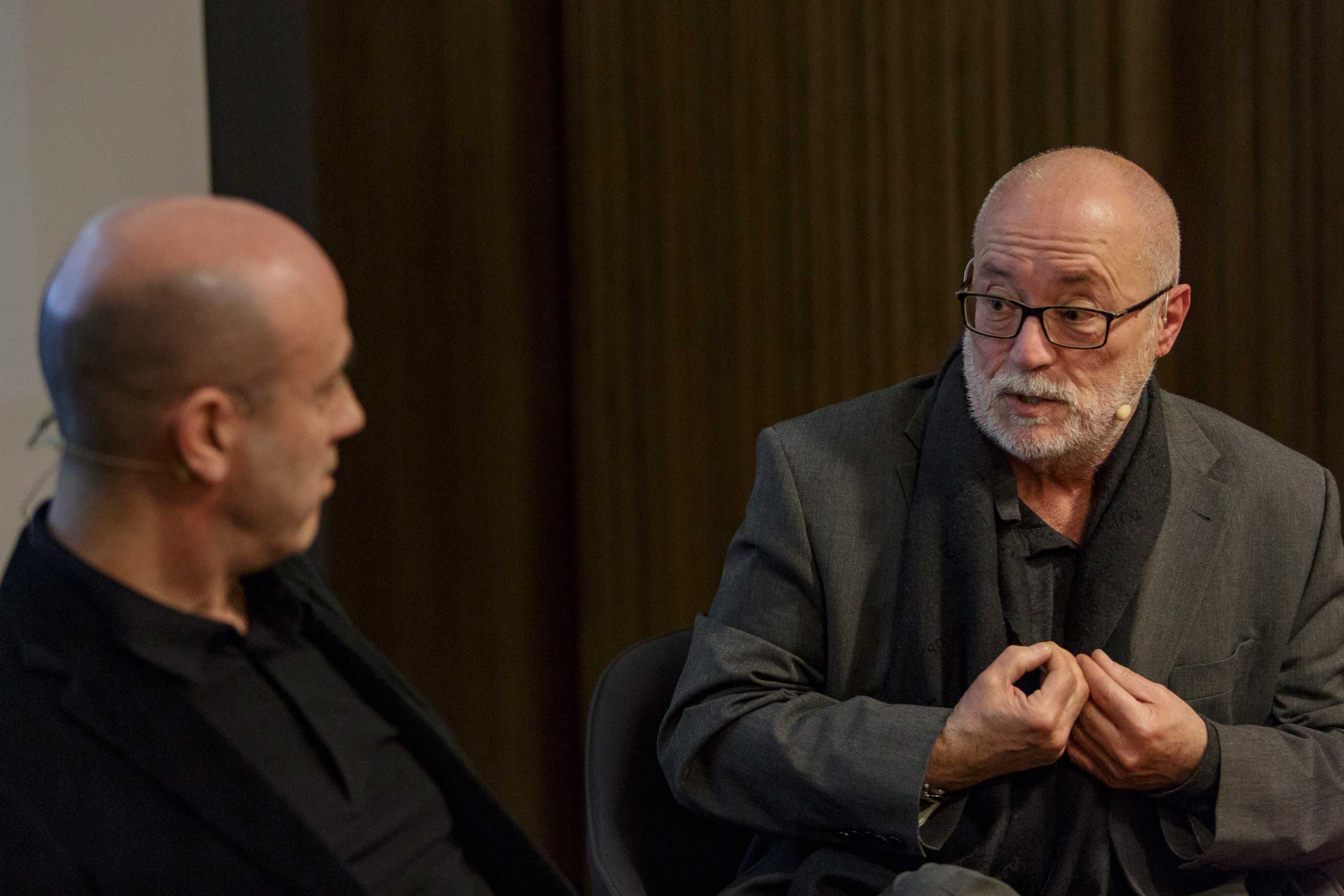
Rafael Mantecón listed the factors that intervene in the price of water and that we often do not take into account: “In Spain the price of water varies a lot depending on the town and this gives rise to a lot of demagogy. We need to take into account that the cost of water does not come only from purification, we have to invest in forecasting and in the management of waste water, and in the sanitation systems that take water to the purification plants”. He highlighted the role that modern plants can play in reducing the price of water: “A wastewater treatment plant is now a factory for raw materials that can be used: sludge for agriculture, energy – which accounts for 33% of the cost of wastewater treatment – can be generated and sold. This makes it possible to reduce the price of water: the more we use the wastewater, the less it will cost us.”
Manuel Suárez explained the experience of the Catalan Water Agency with water charges, which generated a great deal of controversy in the 1980s: “We were concerned about the reaction of the citizens with the sanitation charge. We ran an intense campaign among politicians and citizens. It went well. Then there was more controversy with the following ones, but the results were good and showed that the water fee is necessary.”
On the other hand, Rafael Mantecón confirmed the good result of the water fees that have allowed the regeneration of river ecosystems and the making of significant environmental advances. However, the purification expert explained that domestic water pollution is the major concern for the future of purification and the price of water: “Pollution has taken a 180º turn. In a couple of decades we have gone from controlling industrial pollution to controlling urban pollution, which has become the big problem. For instance, 400 million boxes of ibuprofen are manufactured in Spain and it inevitably appears in the water. We excrete more than 50% of the medicines we use, and also drugs like cocaine end up in wastewater. Their elimination is a huge problem.”
Agriculture, a key factor of the future model
Manuel Suárez insisted on the need for hydrological planning at national level and mentioned the 2008 crisis in Barcelona as an example: “The drought caught us off guard and threatened the city’s supply. The transfers of the Ebro and the Rhone were cancelled, but then we were lucky and it rained. But the crisis led to the installation of desalination plants, which was very positive because there is now a standby resource. The moral we have to learn is that it is essential to plan everything in terms of water. Transfers have bad press but a balance has to be found between transfers and other resources such as desalination.”
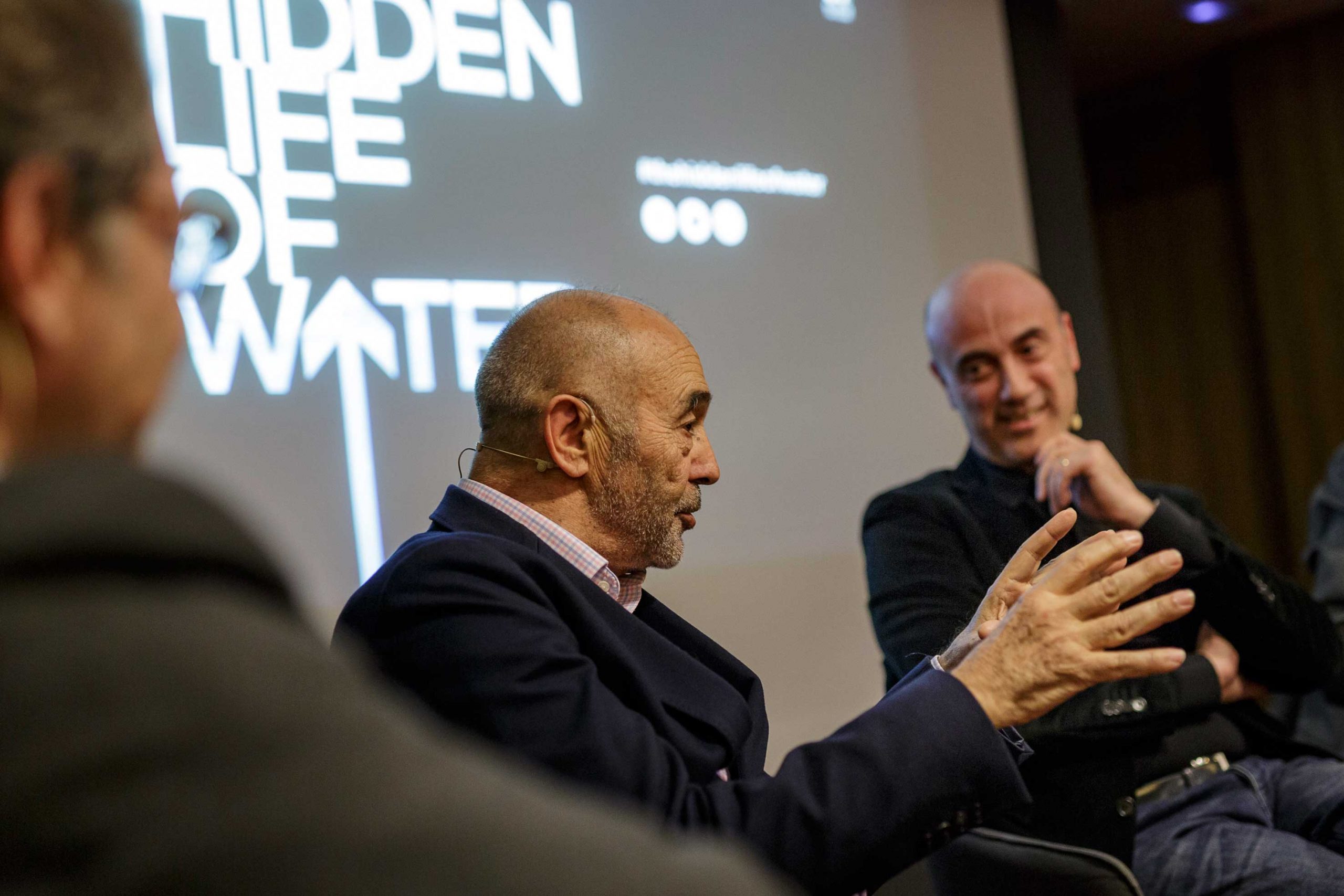
This issue led to agricultural consumption, which takes up more than 70% of the water use and is the key determining factor in the planning of water transfers in Spain. Tomàs Molina highlighted the climate problem faced by the Segura basin and many areas of Andalusia that have serious deficits and will have less rainfall due to climate change: “The entire southeast of the peninsula will have increasingly more water stress and the problem is that we have the European vegetable garden there!”
In reference to this issue, Manuel Suárez pointed out the contradiction that exists in Spain with regard to agriculture: “The areas in which there is a lot of water, such as Galicia and the north, are not suitable for a vegetable garden; the south is where the temperature and sunshine conditions are present and the problem there is the lack of water. If we want to be Europe’s vegetable garden, we have to bring water to those areas.”
Xavier Torras highlighted the concern that the price of the water produced for these irrigations could increase the price of the products: “If we bring water to the vegetable garden, the products will not be competitive, which could seriously affect the economy of these areas. These processes need to be evaluated as the volume of water transferred in commercial transactions from one site to another incorporates the water footprint of the products. And it is clear that local agricultural consumption causes less water stress.”
Manuel Suárez agreed and pointed out the changes agriculture is undergoing: “Agriculture is changing its models in the interest of efficiency: drip irrigation, new greenhouses, etc. It is a challenge that I believe will be attained and Spanish agriculture will achieve sustainability.”
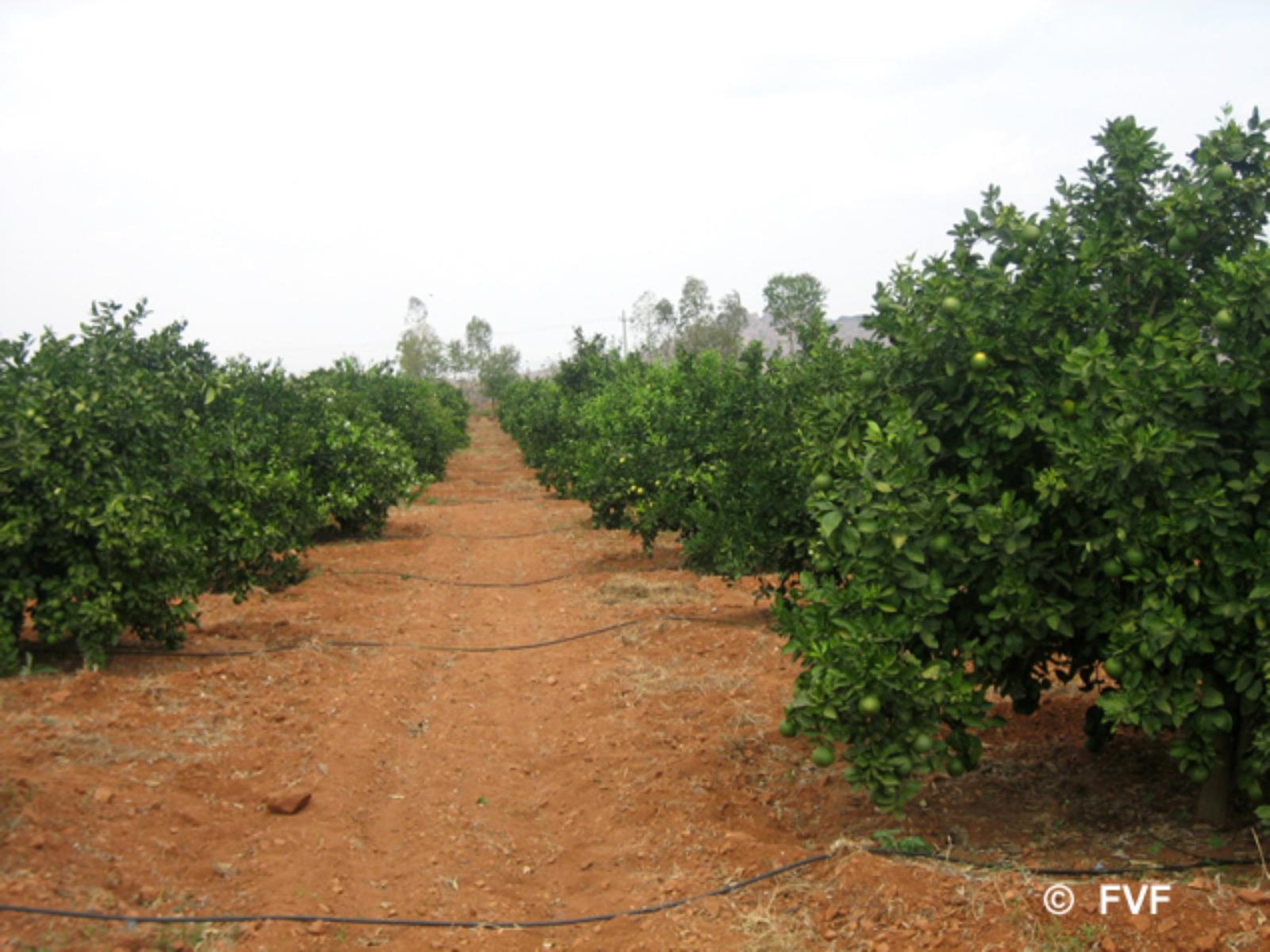
With optimism for the future
Despite the problems explained in the debate, all speakers were optimistic about the future of the access to water. Xavier Torras highlighted the important advances made by large companies to reduce water consumption. Tomás Molina believes that we will be able to reach agreements on water, even in the case of transfers. Rafael Mantecón and Manuel Suárez are also convinced that we will find the right treatment model, price and quantity of water and that we will do it by mutual agreement.


